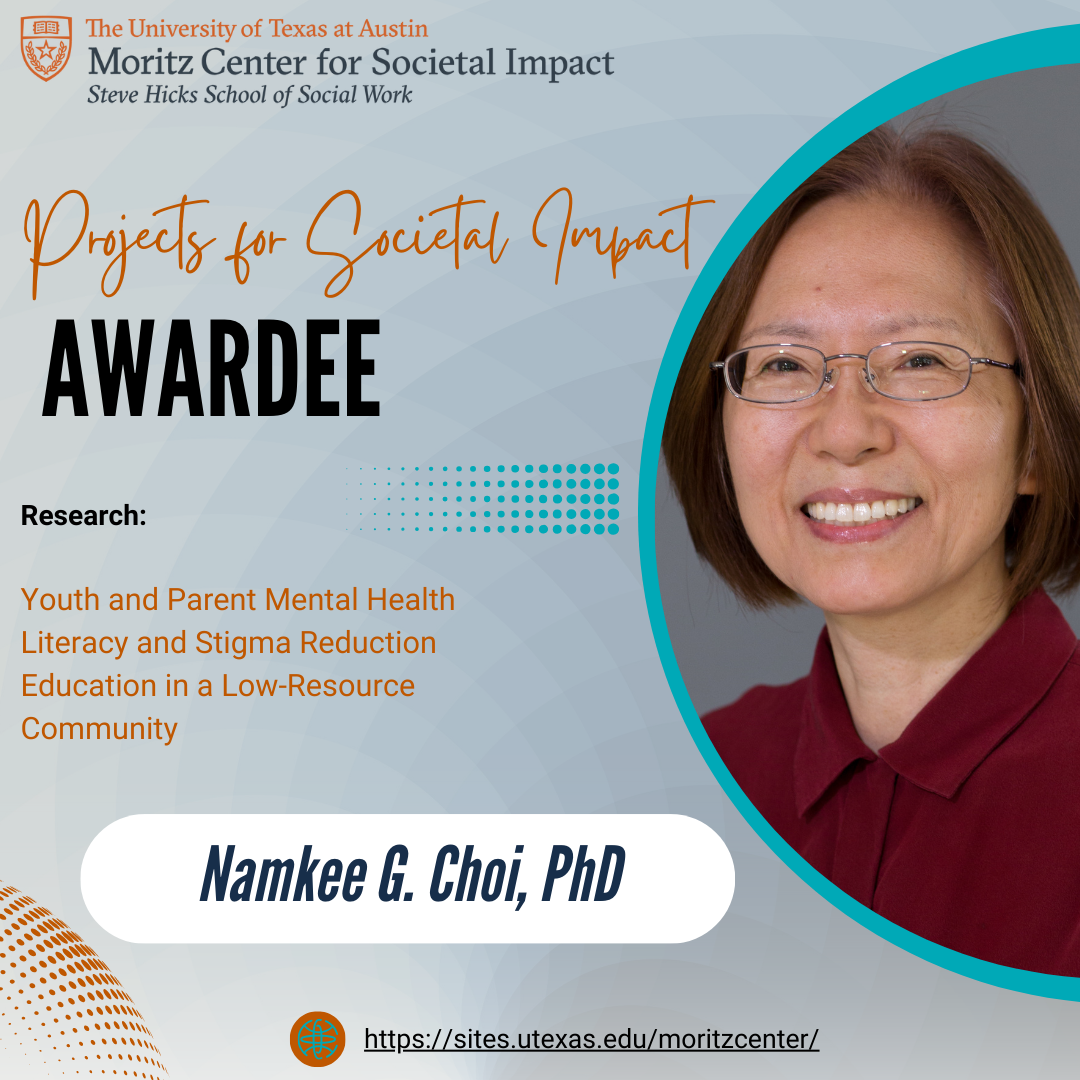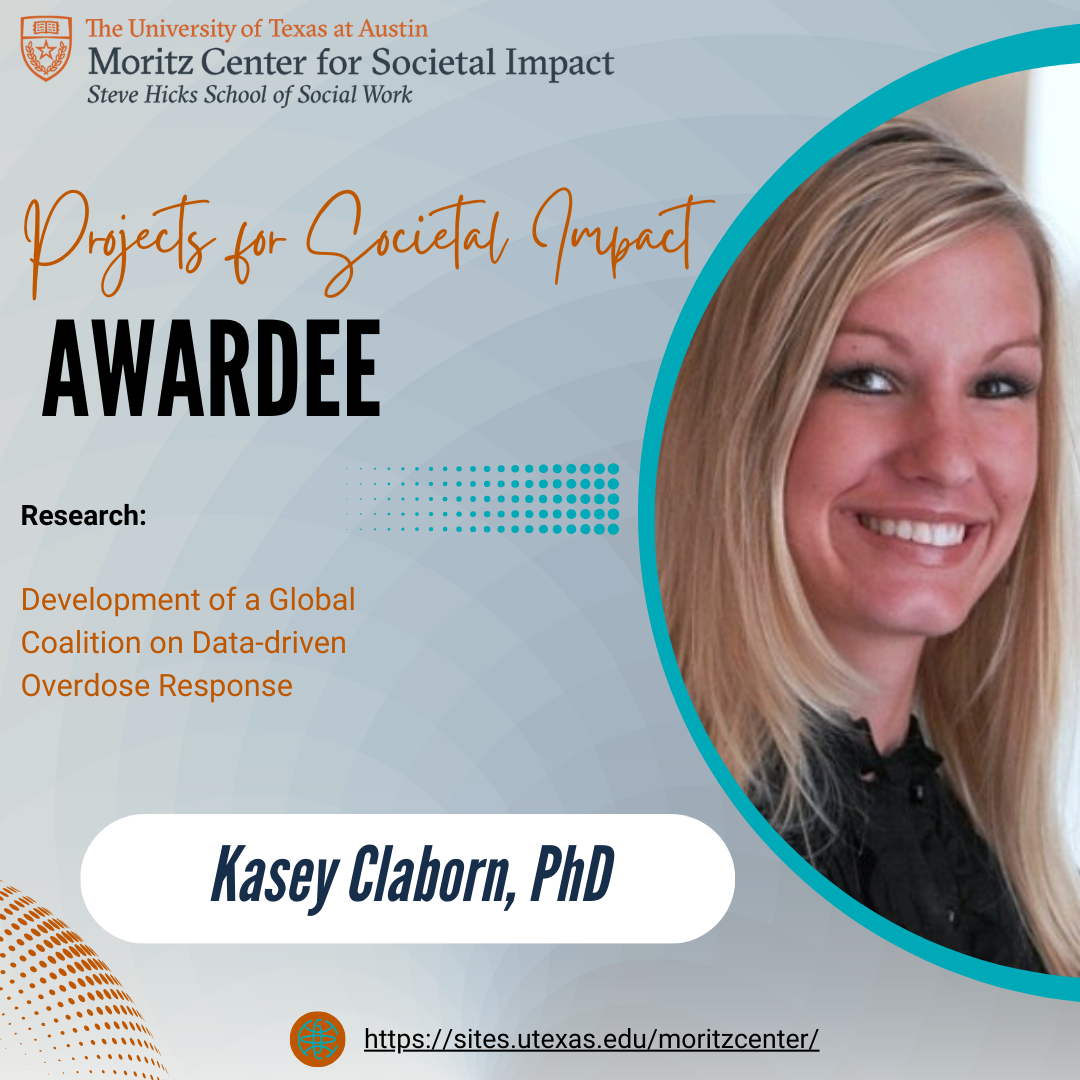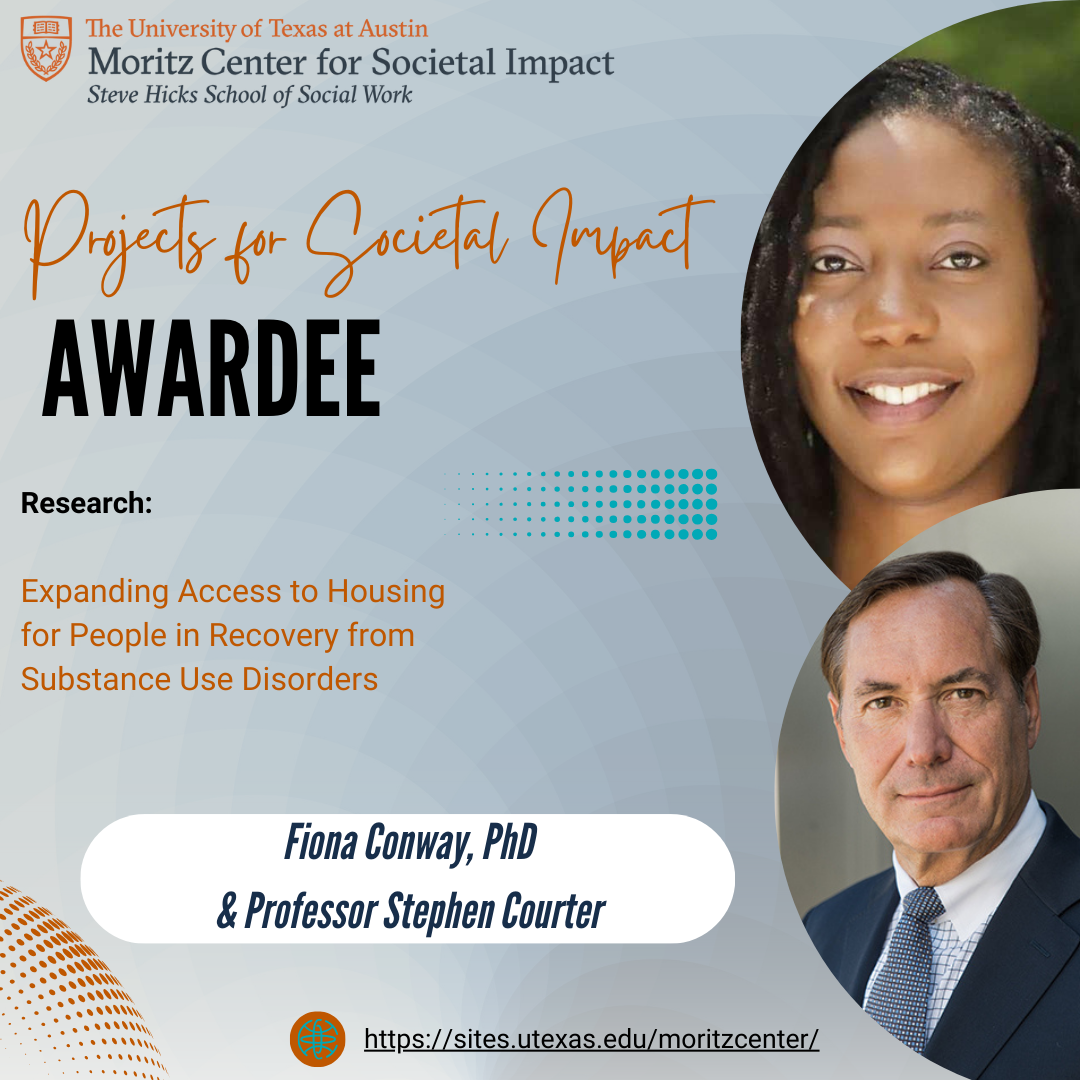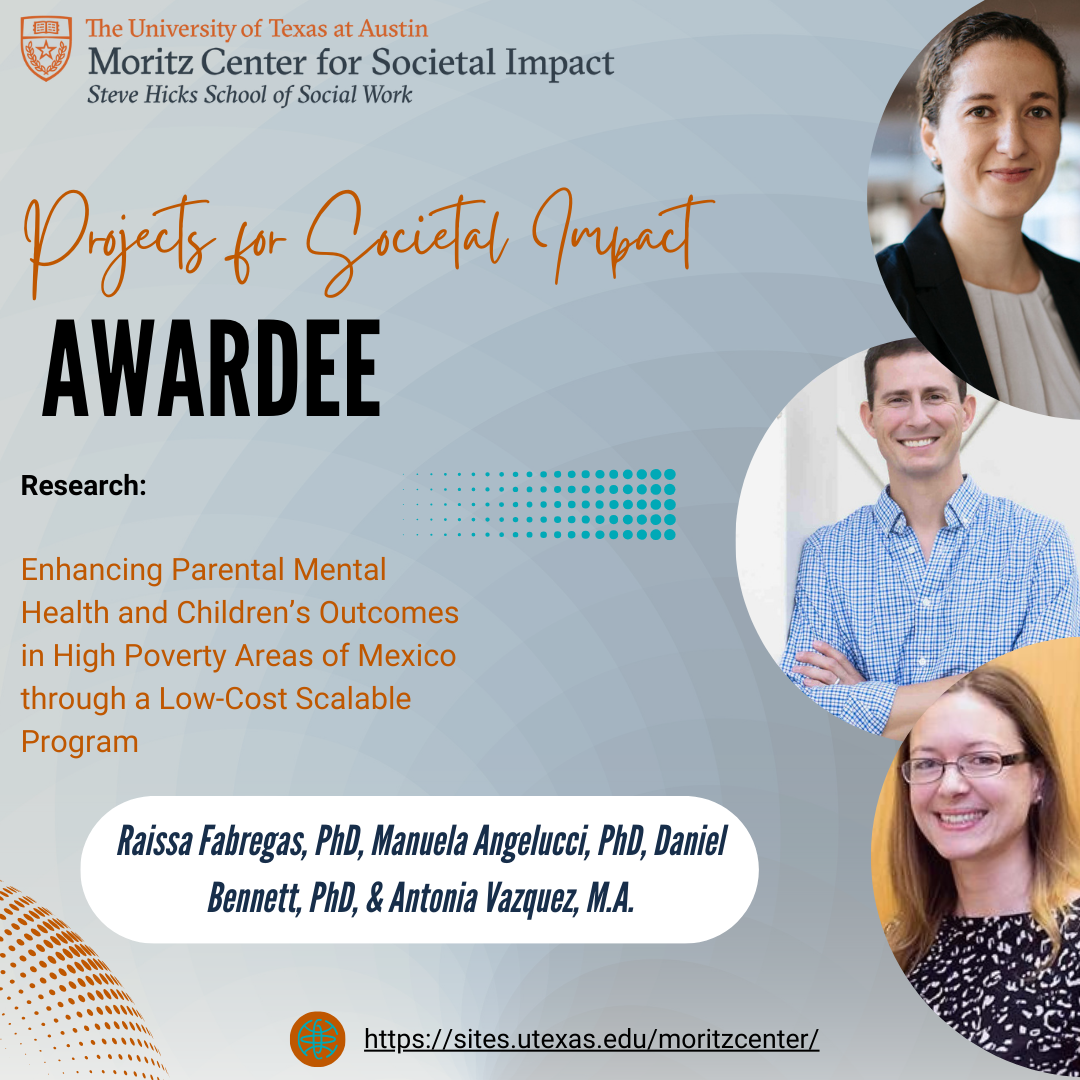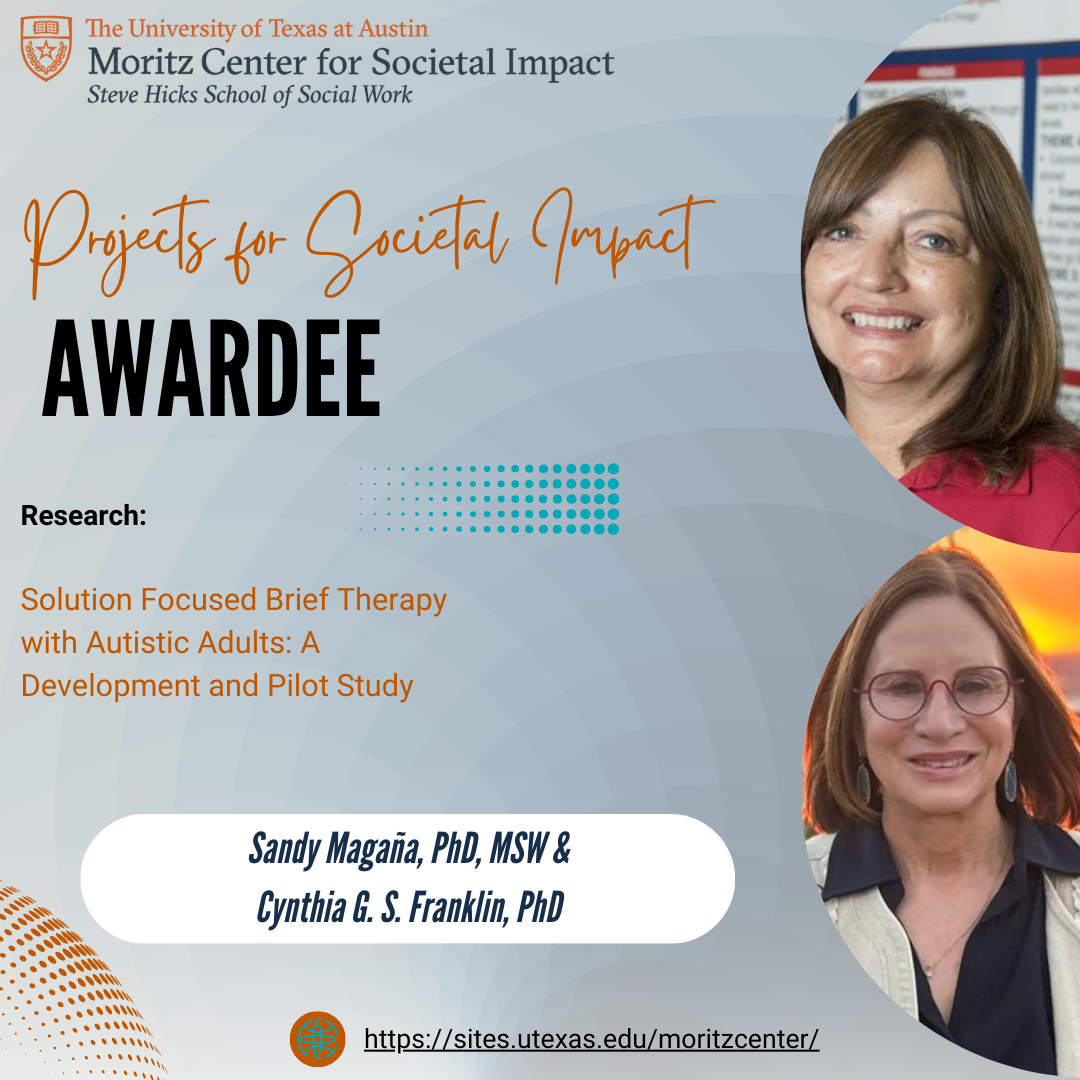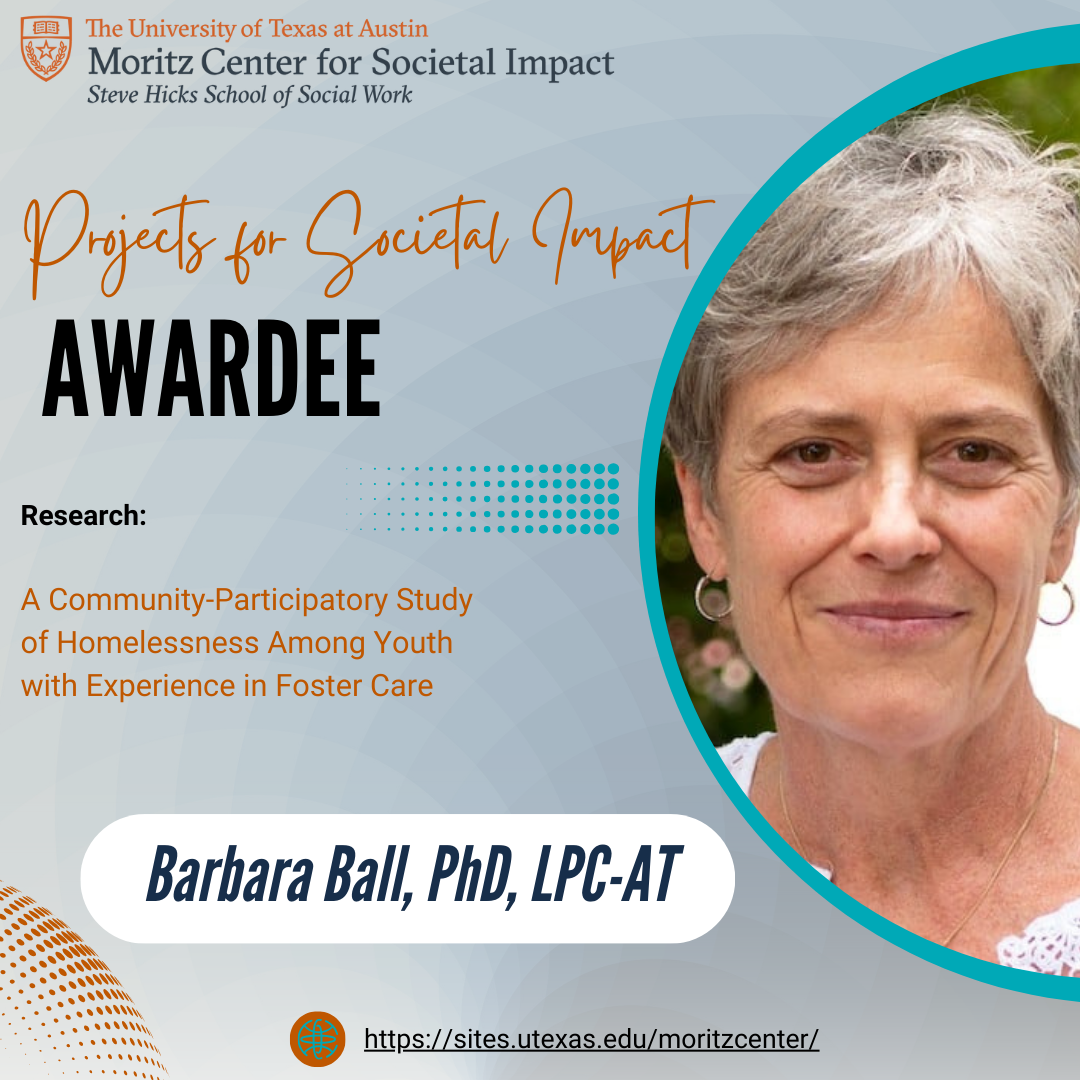Projects for Societal Impact
Applications Open Fall 2024
About
Utilizing the summer months (June, July, and August), UT faculty and students (undergraduate and graduate) from any UT college or school will partner to work on projects funded by MCSI. Grants will be awarded annually to teams made up of faculty and students (shared equally) and may include financial support for community partners, when needed, to enable their full participation in the projects.
The goal is to allow faculty and students to engage in a sustained, streamlined effort to conduct original research, apply previous research findings in real-world settings, and/or focus on replication, implementation, or dissemination of findings while testing innovative and impactful ideas with community partners. Community partners will benefit from UT resources being utilized in service to common interests and efforts.
Meet our 2024 PSI Scholars
Aligned with one of the 6 Projects for Societal Impact, these talented students will work alongside their faculty lead to facilitate groundbreaking research and create lasting community impact
2024 AWARDEES
Youth and Parent Mental Health Literacy and Stigma in a Low-Resource Community
Namkee G. Choi, Phd
Youth mental ill-health is a serious public health crisis. In this project, Dr. Choi and the members of the Manor Wellness Alliance will implement three, day-long mental health leadership boot camps for a total of 24 parent-youth dyads to increase mental health literacy, reduce stigma, and increase mental health help-seeking intentions; to train the participants in abbreviated Behavioral Activation; and to build the participants’ capacity to become community mental health advocates
Development of a Global Coalition on Data-driven Overdose Response
Kasey Claborn, Phd
This project, based at the Addiction Research Institute and in partnership with the French Red Cross Chapter in Brittany, France, will develop a global coalition of academic and community partners to strengthen national capacities to respond to the overdose and drug crisis. The goal is to facilitate data-driven community overdose response efforts and to use this forum for rapid knowledge exchange to inform global drug policy supporting evidence-based overdose prevention strategies.
Expanding Access to Housing for People in Recovery from Substance Use Disorders
Fiona Conway, Phd & Professor Stephen Courter
This project seeks to improve the sustainability of substance use recovery housing in Texas. We will work with the CLEAN Cause Foundation to identify recovery home providers and collect data regarding their business models, financial management practices, and revenue streams to inform the development of innovative business models.
Enhancing Parental Mental Health and Children’s Outcomes in High Poverty Areas of Mexico Through a Low-Cost Scalable Program
Raissa Fabregas, PhD, Manuela Angelucci, PhD, Daniel Bennett, PhD, & Antonia Vasquez, M.A.
This project will operate as a pilot that will serve as a foundation for a large-scale field evaluation of a mental health program implemented in Ecatepec, Mexico by our partner NGO, Redes Sociales para el Desarrollo (REDDES). We will investigate whether a low-cost, scalable mental health program improves parental well-being and benefits children’s educational and socio-emotional outcomes.
Solution Focused Brief Therapy with Autistic Adults: A Development and Pilot Study
Sandy MagañA, PhD, MSW & Cynthia G. S. Franklin, Phd
This project will operate as a pilot that will create an intervention that will provide practitioners and clinicians with evidence-based methods for working with Autistic Adults and aims to contribute to the needed, yet sparse research of evidence-based behavioral health interventions for this population. Solution Focused Brief Therapy (SFBT) modified and adapted for this population can aid in creating standardized approaches increasing the quality of Care, knowledge in the field, and filling a demand for more behavior health clinicians that can provide services to adults with IDDs.
A Community-Participatory Study of Homelessness Among Youth with Experience in Foster Care
Barbara Ball, PhD, LPC-AT
In Austin, Travis County, 49% of homeless individuals seeking housing assistance report a history in foster care which indicates an urgent need to develop a deeper understanding of youth needs and experiences, identify opportunities for programmatic and policy changes, and increase coordination between homelessness response, child welfare, and other systems.
The Texas Institute for Child & Family Wellbeing will partner with ECHO, the lead agency in the Austin/Travis County Homelessness Response System, and Change 1, an Austin-based organization that provides support for youth aging out of foster care, to conduct a community-participatory research study that will explore access to services, systems collaboration, and opportunities for effective prevention and intervention.
Stay Updated
Join our mailing list to receive a notice when applications are open.
Social Widgets powered by AB-WebLog.com.

